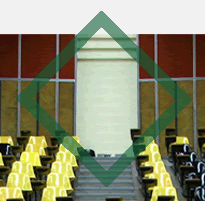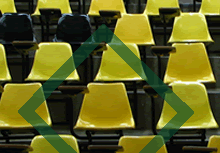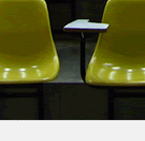"E": What do MOOCs offer students?
 |
 |
 |
|||||
 |
 |
||||||
 |
 |
 |
|||||
 |
 |
||||||
Higher Ed and MOOCs
In our current pedagogical moment, when it comes to the topic of MOOCs in higher education, most of us in the field of rhetoric and composition concede that emerging findings related to the effectiveness of MOOCs are not surprising. Although promising on the levels of scope and scalability, MOOCs are not “lifting people out of poverty” (Friedman). In fact, evidence seems to suggest that MOOCs actually help advantaged students more than disadvantaged students (Schuman). Completion rates for many MOOCs are particularly low—around 10% for Udacity (Kolowich) and averaging 4% for Coursera (Perna et al.). Along similar lines, failed experiments like the one at San Jose State University point to even more shortcomings, especially with respect to the role of mentoring in MOOCs. Perhaps more disturbing than recent reports about the ostensible shortcomings of MOOCS are the ways in which some providers are shifting to respond to criticisms and capitalize on general interest. Judging by the rhetoric of some MOOC developers—Udacity in particular—it seems the future of MOOCs will focus less on meeting the needs of diverse student populations and more on representing corporate interests (Chafkin).
Despite the emergence of interest of MOOCs and critical receptions in several academic books, MOOCS remain understudied in our field. This chapter does not address emergent distinctions among connectivist MOOCs or the feminism and technology distributed open collaborative course (DOCC), which are all specifically designed to be highly participatory. We also do not focus on MOOCs that have received significant attention or acclaim in the press or within rhetoric and composition professional discussion lists. Instead, we deliberately sampled courses in different disciplinary areas and chose several types to examine for overt statements and assumptions about participation.